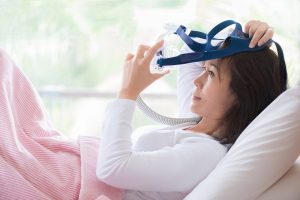 If you’re regularly not feeling well rested after a night of sleep, you may want to think about why. It could save your life.
If you’re regularly not feeling well rested after a night of sleep, you may want to think about why. It could save your life.
A new study is showing that sleep apnea – a condition that causes people to stop breathing during sleep – can be life threatening. Further, it’s associated with increased risk for high blood pressure, coronary artery disease, and congestive heart failure.
Advertisement
Sleep apnea is so concerning because people either don’t know or don’t acknowledge that they have it.
The symptoms occur when you are essentially unconscious, so the only way to really get a beat on whether you have the condition is if:
- Your sleeping partner says something
- You recognize you’re always fatigued after believing you had a good sleep
- You go for a screening
The condition is believed to be highly common yet underdiagnosed, posing a severe health threat to millions of undiagnosed individuals.
It could be life-threatening, according to some new research from Penn State University.
A research team reviewed 22 studies that included more than 42,000 people. They found that people with obstructive sleep apnea (OSA) were twice as likely to die suddenly. The risk rose as patients aged.
The best treatment for the condition is a continuous positive airway pressure, or CPAP, machine. It sits on your face during sleep and provides a steady stream of pressurized air that keeps airways open to ensure continued breathing.
Advertisement
Losing weight and lifestyle habits like limiting alcohol in the evening may help too. Basically, anything that helps reduce weight or the risk of heart disease may have benefits for sleep apnea.
At the end of the day, it might be worth going for a screening. If your partner has been telling you for years that you’re gasping for air while snoring, or you’re consistently feeling like you didn’t get a good night’s sleep, go get checked.
It could save your life.
